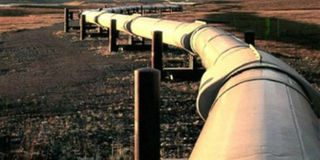Uganda, TZ to hire adviser on oil pipeline financing

What you need to know:
- A concept brief for the project issued by the ministry of Energy yesterday indicated that the parties are looking at before end of this month to put out a request for proposals for a consultant who will, among others, review proposals (once statements of qualifications are issued), manage international competitive tenders and advise on the selection of a suitable investor for the project.
Kampala. Uganda, Tanzania and French oil company Total E&P — the lead joint venture partner on the proposed crude oil export pipeline — are considering getting on board a transactionary adviser to advise them on getting a lead investor and the $3.55 billion (Sh12.6 trillion) required for financing the project.
A concept brief for the project issued by the ministry of Energy yesterday indicated that the parties are looking at before end of this month to put out a request for proposals for a consultant who will, among others, review proposals (once statements of qualifications are issued), manage international competitive tenders and advise on the selection of a suitable investor for the project.
The 1,445km pipeline dubbed the East African Crude Oil Pipeline (EACOP) from Kabaale (Hoima District) to Tanga Port will be financed through debt financing, Tanzania’s Energy minister Sospeter Muhongo revealed on Monday here.
“We will have to go to the international markets to raise capital, because as countries we don’t have this money,” Mr Muhongo said during the launch of the Front-End Engineering Design (FEED) EACOP. Discussions are ongoing to form a Special Purpose Vehicle (referred to as Pipe Co), to construct, own and operate the EACOP and will as well negotiate the Shareholder’s Agreement, Project Financing Agreements and Transportation Agreement between shippers of oil from Tanga Port to the international market. Pipe Co will pay back the lenders from the project returns.
Pipe Co shareholders will fund EACOP through a mix of equity and project financing, seeking to achieve between 60 per cent and 70 per cent of external debt. The financing plan, is however, still subject to discussions pending getting on board a transactionary adviser and completion of the FEED.
The FEED will focus on the technical requirements to give a clear picture of the project and ensure the Final Investment Decision is reached by end of 2017 and pave the way for detailed engineering, procurement and construction by early 2018 with minimal technical, cost and schedule risks.




